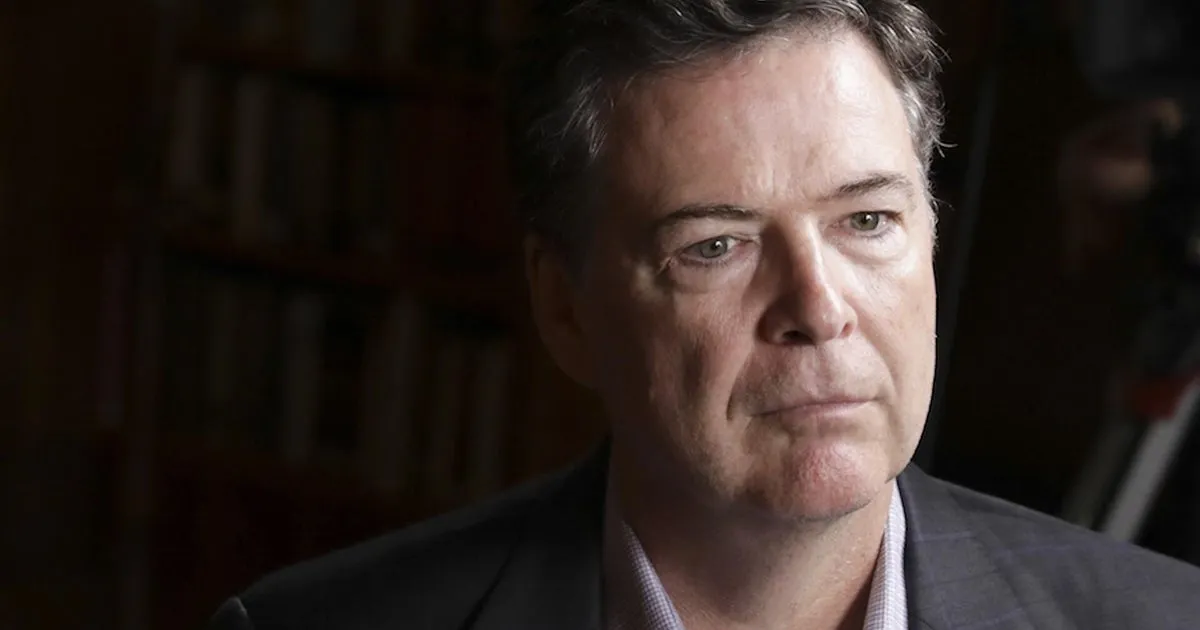
In a significant development in U.S. politics, federal prosecutors are reportedly nearing a decision on whether to seek an indictment against former FBI Director James Comey. This comes after a long-standing rivalry with President Donald Trump, as multiple sources have informed CBS News about the ongoing investigation. The precise nature of the alleged crimes remains unclear, but speculation has arisen that prosecutors may be examining potential charges related to Comey's testimony before Congress in 2020 regarding the origins of the FBI's investigation into Russian interference in the 2016 election.
Media outlets have indicated that prosecutors are particularly focused on whether Comey may have lied to Congress. The statute of limitations for such charges is set to expire on Tuesday, which adds urgency to the situation. Sources suggest that prosecutors are contemplating presenting evidence against Comey to a grand jury. For an indictment to proceed, a majority of the grand jury would need to determine that there is probable cause to believe a crime was committed. This standard is notably lower than the burden of proof required for a criminal conviction.
If Comey is indeed charged, it would represent a dramatic escalation in the Trump administration's efforts to hold adversaries accountable. Just four days prior, President Trump took to Truth Social to seemingly encourage Attorney General Pam Bondi to investigate Comey, labeling him and others as "guilty as hell" and insisting that "JUSTICE MUST BE SERVED." Furthermore, Trump announced the firing of the top federal prosecutor in the Eastern District of Virginia, Erik Siebert, who had recently resigned amid concerns that he might be dismissed for not pursuing charges against another political opponent, New York Attorney General Letitia James.
In a notable shift, Mr. Trump's former personal lawyer, Lindsey Halligan, was sworn in as the interim U.S. Attorney for the Eastern District of Virginia. This change raises questions about the motivations behind the leadership transition and its potential impact on ongoing investigations, particularly those involving high-profile political figures.
The contentious relationship between Comey and Trump has been well-documented. As the FBI Director during the 2016 election cycle, Comey oversaw critical investigations into alleged Russian interference and the scrutiny of Hillary Clinton's private email server. The FBI's management of these investigations has faced intense criticism, and the Crossfire Hurricane probe into Russian election interference has particularly incensed Trump and his supporters. In 2017, Trump fired Comey, prompting a series of public disputes between the two figures.
Comey has publicly accused Trump of being morally unfit for the presidency and of demanding loyalty when he served as FBI Director. Conversely, Trump has levied accusations of dishonesty against Comey, suggesting that he should face jail time for his actions. Following Trump's return to the political forefront, he has continued to express his disdain for the FBI and the agencies involved in the Russia investigation.
As the Justice Department investigates the handling of classified materials related to Russia by former senior FBI officials, the implications of this case grow even more complex. Legal experts have voiced concerns about the potential for political pressure to distort prosecutorial judgment. Tom Dupree, a former Justice Department official, highlighted the unprecedented nature of this situation, warning against a reality where prosecutorial decisions are influenced more by presidential expectations than by the evidence at hand.
As developments unfold, the situation surrounding James Comey and the potential indictment could have far-reaching consequences for the political landscape in the United States.